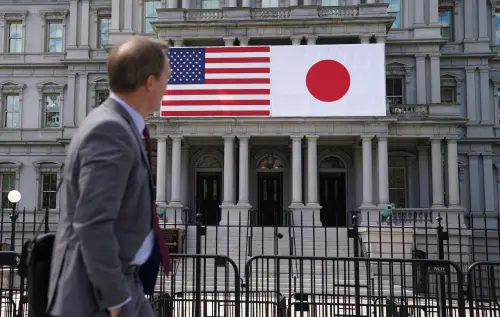A new generation of leaders takes command of the 65 million member Chinese Communist Party and 1.3 billion citizens of China at the party’s 16th Congress beginning tomorrow. There will be many unanswered questions about the leaders, their world view and domestic policy priorities. But the most important issue facing this new, “fourth generation” of leaders is institutional: they will inherit a party apparatus that is an increasingly hollow shell, feigning rule rather than exerting authority. The party today faces dual crises of identity and legitimacy.
Widespread alienation and cynicism exist at all levels of society about politics and the party. At the same time, weakened tools of coercion and the growth of a market economy have led to high levels of social instability, growing dissent and challenges to party doctrine. Rampant corruption has laid bare the insufficiency of the legal system, the lack of political checks on power and inadequate commercial transparency. Many of the party’s current problems are the result of broad processes associated with socioeconomic modernization and greater social stratification. Significant parts of society have been left behind as others have benefited from market reforms. Rural incomes have been stagnant for a decade, forcing about 100 million people to roam the country looking for work in cities. Meanwhile, restructuring of the state industrial sector has created a level of unemployment unprecedented since the Communist Party came to power in 1949.
Even the parts of society that have experienced some economic gains pose new challenges for the party. Those gains have led to rising public demands for improvements in health care, public safety, jobs, education, environmental quality and care for the elderly.
The party at all levels is attempting to meet demands brought on by the breakdown of many social services, but it cannot fully meet these demands, in part because it has suppressed avenues of input from the people themselves. Evidently, one of the principal lessons that the party leadership seems to have drawn from the overthrow of Communist parties in Eastern Europe a decade ago is that allowing independent labor unions, autonomous churches and other civic organizations to exist is to create a foundation for organized political opposition. So the party has opted for a mixture of suppression and co-optation of such social groups—a strategy that might work in the short term but is not ultimately sustainable.
The deeper problem for the party is that it offers no convincing philosophy or vision for the nation’s future. A communist future is no longer believable as Marxist-Leninist ideology has been diluted beyond recognition in contemporary China. Yet no comprehensive alternative vision has been offered by the party and its retiring leader, Jiang Zemin. Mr. Zemin’s “Three Represents” theory—an effort to open the party to entrepreneurs, technocrats and the intelligentsia—certainly does not stir the nation.
Aside from propagandistic clichés, what the party seems to advocate today is really no different from the core themes that all Chinese rulers since the 1870’s have advocated: attaining wealth and power; enhancing nationalism and international dignity; preserving unity and preventing chaos. These ideas still resonate deeply in China and continue to lend the current party leaders some degree of legitimacy and continuity with the past. But the party’s legitimacy is growing weaker as it proves itself incapable of dealing with increasing social disparities.
The central challenge for the party’s new leadership is how to remain relevant to a rapidly changing society. The loss of party control in China is an incremental process, a gradual decay instead of the sudden implosion that occurred in the former Soviet Union and its satellites in Eastern Europe and Central Asia. If the Communist Party’s rule is frontally challenged, as in 1989 during the Tiananmen crisis, it can probably maintain power through armed force—although even that is no longer entirely certain. But if the party is to remain in power without having to resort to force, it must develop means of governance that share power with the people and civic organizations.
A remarkable public opinion poll released this week by a research center affiliated with the prestigious Chinese Academy of Social Sciences found that 91 percent of respondents said the justice system was unfair while 80 percent said they wanted to elect their officials directly. A majority said the party Congress should focus on improving social welfare and job creation and should adopt new political reforms.
If the party fails to respond effectively to these growing demands, its ability to maintain its power will only continue to decline.


Commentary
Op-edWill the Party Lose China?
November 7, 2002